Has Manchester become the fast-fashion capital of the UK?
By Rachel Kevern
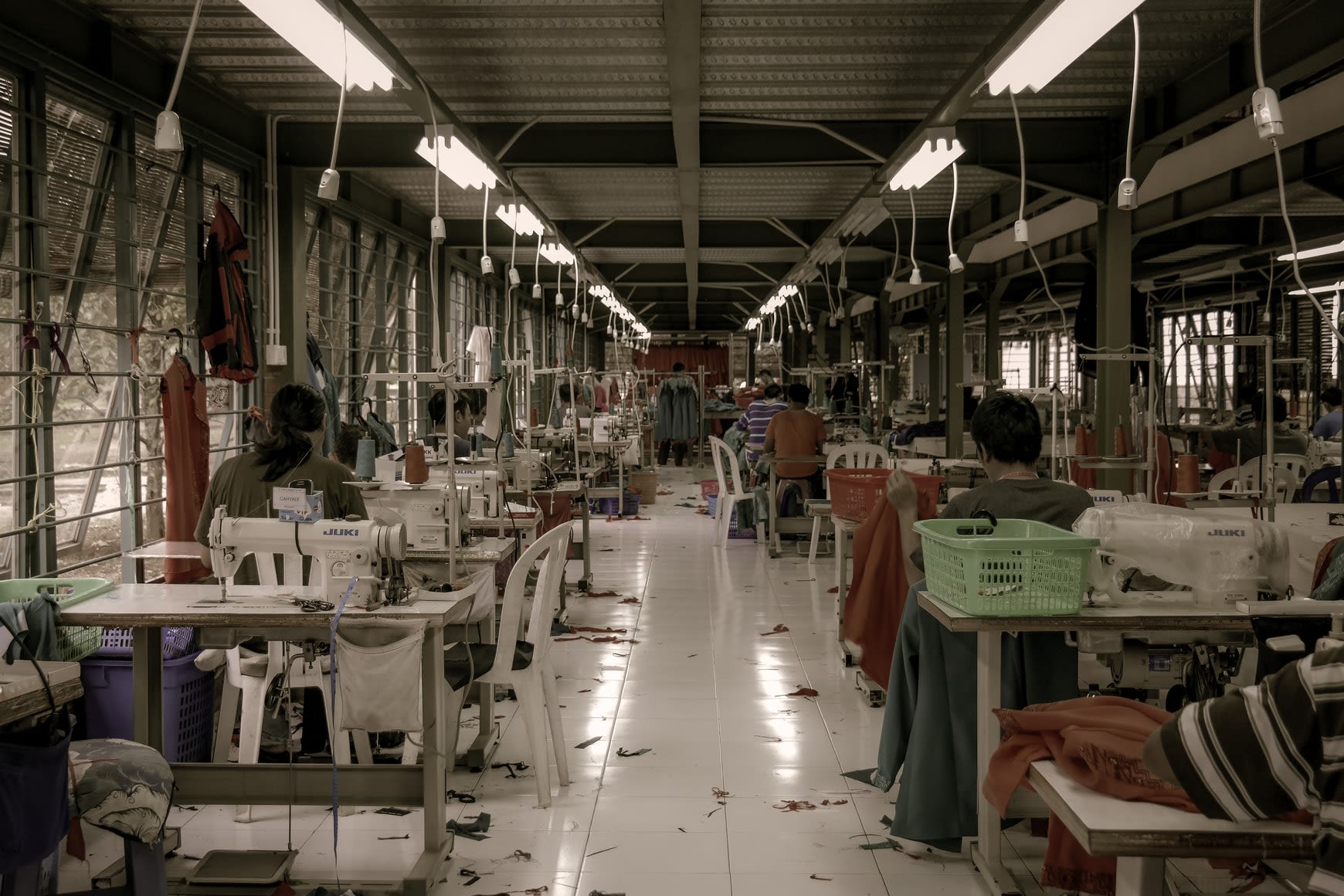
The historical centre of the UK's cotton industry is now home to some of the biggest names in fast fashion.
Cottonopolis, Manchester's nineteenth-century nickname, was born out of the city's dominant role in global textile manufacturing.
Manchester and its surrounding towns were once the largest and most productive cotton spinning centres in the world.
Today, the city is once again one of the UK's most important style hubs. Now, however, its famous cotton mills have given way to the gleaming HQs of some of the world's most lucrative fast-fashion brands.
Fashion at COP26
COP26 saw 130 top fashion brands pledge to halve their greenhouse gas emissions by 2030.
The pledge - which was supported by major brands including Burberry, H&M, and Nike - aimed to tackle the environmental impacts of one of the world's most polluting industries.
The global sector was responsible for about 4% of total greenhouse gas emissions in 2018 - comparable to combined emissions of France, Germany and the UK, according to McKinsey.
COP26, which took place in Glasgow between 31 October and 13 November 2021, brought parties together from around the world to accelerate action towards the goals of the Paris Agreement and the UN Framework Convention on Climate Change.
Under the new UN Fashion Charter agreement revealed at COP26, signatories committed to a decarbonization plan aligned with Paris Agreement ambitions to limit global temperature rise to 1.5 degrees Celsius above pre-industrial levels.
The updated Charter also includes a commitment to sourcing 100% of electricity from renewable sources and phasing out coal from the supply chain by 2030, and using environmentally friendly raw materials.
Despite 130 companies signing up to the pledge, reports suggest the wider industry will fall well short of emissions goals based on its current trajectory.
Signatories to the updated fashion charter represent just a small fraction of the vast clothing and footwear industry.
Many major fast-fashion brands, including Manchester-based Boohoo and PrettyLittleThing, were entirely absent from COP debates.
From why the current commitments aren’t good enough to fashion’s role in cutting down emissions, here’s what you need to know. https://t.co/iRomobRvzt
— British Vogue (@BritishVogue) November 16, 2021
Yesterday, the @BFC and @GREATBritain hosted the ‘GREAT Fashion for Climate Action’ at @COP26, showcasing the work of innovative, creative and purpose driven British brands including @burberry, @stellamcartney and Bethany Williams. pic.twitter.com/UXga0br71n
— BFC (@BFC) November 10, 2021
An interactive map showing the concentration of major fast-fashion retailers in Manchester, including the head offices of PrettyLittleThing, Missguided, Boohoo, Glamorous, EGO Shoes, In The Style, and Forever Unique.
Click on the icons for key information about each brand.
What's the big deal with fast fashion?
The fashion industry emits approximately the same quantity of greenhouse gases per year as the entire economies of France, Germany, and the UK combined.
In 2019, the UK government published a full report into the sustainability of the fashion industry.
In it, both Boohoo and Missguided were used to exemplify the term 'fast fashion', described in the report as being defined by 'overproduction and overconsumption'.
Along with ASOS, these Manchester-based brands were named as fuelling an 'unsustainable' mode of consumption, which 'contributes more to climate change than international aviation and shipping combined, consumes lake-sized volumes of fresh water and creates chemical and plastic pollution.'
The report also noted that the UK population buys more clothes per person than any other country in Europe - and around 300,000 tonnes of textile waste ends up in household black bins every year.
'Less than 1% of material used to produce clothing is recycled into new clothing at the end of its life. Meanwhile, retailers are burning new unsold stock merely to preserve their brand.'
Twenty percent of industrial water pollution annually is the result of fabric production, and 35% of ocean microplastic pollution found on coastlines around the world comes from synthetic textiles.
Despite the updated fashion charter, clothing consumption is expected to rise by 63% by 2030 to a total of 102million tonnes.
At the same time, 25% of fast-fashion garments remain unsold, while the average number of times a garment is worn before it's discarded has decreased by 36% compared to 15 years ago.
Dr Patsy Perry, a Reader in Fashion Marketing and Academic Lead for International at Manchester Fashion Institute, Manchester Metropolitan University, said:
‘By definition, fast fashion is cheaply manufactured, on-trend clothing which enables consumers to frequently update their wardrobe and is not designed to be worn for any great length of time.’
Online retailers have been able to capitalise on social media to push their products onto a far-reaching receptive audience.
‘We spend so much time online now on social media and it’s addictive to keep scrolling and thinking, “Oh god, I need to be wearing this, I need to be wearing that”,’ said Perry.
‘What you’re seeing a lot of the time is an endless array of brand new outfits. There aren't a great deal of people showing how to rework what you’ve already got in your wardrobe, how to restyle things, how to swap and share and so on.
‘Generally it’s about, “buy this shiny new thing”. There’s not much of an alternative voice to get inspired by.’
"The UK is the epicentre of fast fashion in Europe, with each person buying an estimated 26.7kg of clothing every year, compared to an average 15.6kg for people across Germany, Denmark, France, Italy, the Netherlands and Sweden."
As well as damaging the planet, fast-fashion brands frequently fail to ensure humane working conditions and a liveable wage for the people making their clothes.
The famously low prices of brands such as Boohoo and PrettyLittleThing come at a very real human cost.
An investigation by The Guardian last year found that garment workers in Boohoo's Pakistani factories faced appalling conditions and earnt as little as 29p an hour.
According to the report, workers at two factories in Faisalabad claimed they were paid 10,000PKR (£47) a month, well below the legal monthly minimum wage for unskilled labour of 17,500PKR, while making clothes to be sold by Boohoo.
This kind of human resource exploitation throughout the supply chain is a fundamental part of the fast-fashion business model, allowing retailers to stock huge quantities of cheaply-manufactured clothing at pocket money prices.
A quick visit to the online stores of Boohoo, PrettyLittleThing (owned by the Boohoo Group), and Missguided highlights the predominance of extremely low price tags.
When sorting dresses by price (low to high) on the Boohoo website, the first 657 styles displayed would set you back less than £5 each — with the cheapest dresses costing just £1.
The cheapest dress on the Missguided website was £1.60 at the time of writing, while you could get your hands on a PrettyLittleThing dress for £2.50.
When it’s possible to purchase a brand new outfit for the price of a cup of coffee, it’s easy for consumers to buy into a throwaway fashion culture.
Perry said: ‘Consumer mindsets need to change, and not be always chasing the shiny new thing, but celebrating longevity and choosing carefully and buying what you really love.
‘And brands need to support us with that, and offer us good quality things that we’re going to fall in love with and want to keep wearing for longer, or at least things that can have a second life with someone else.’
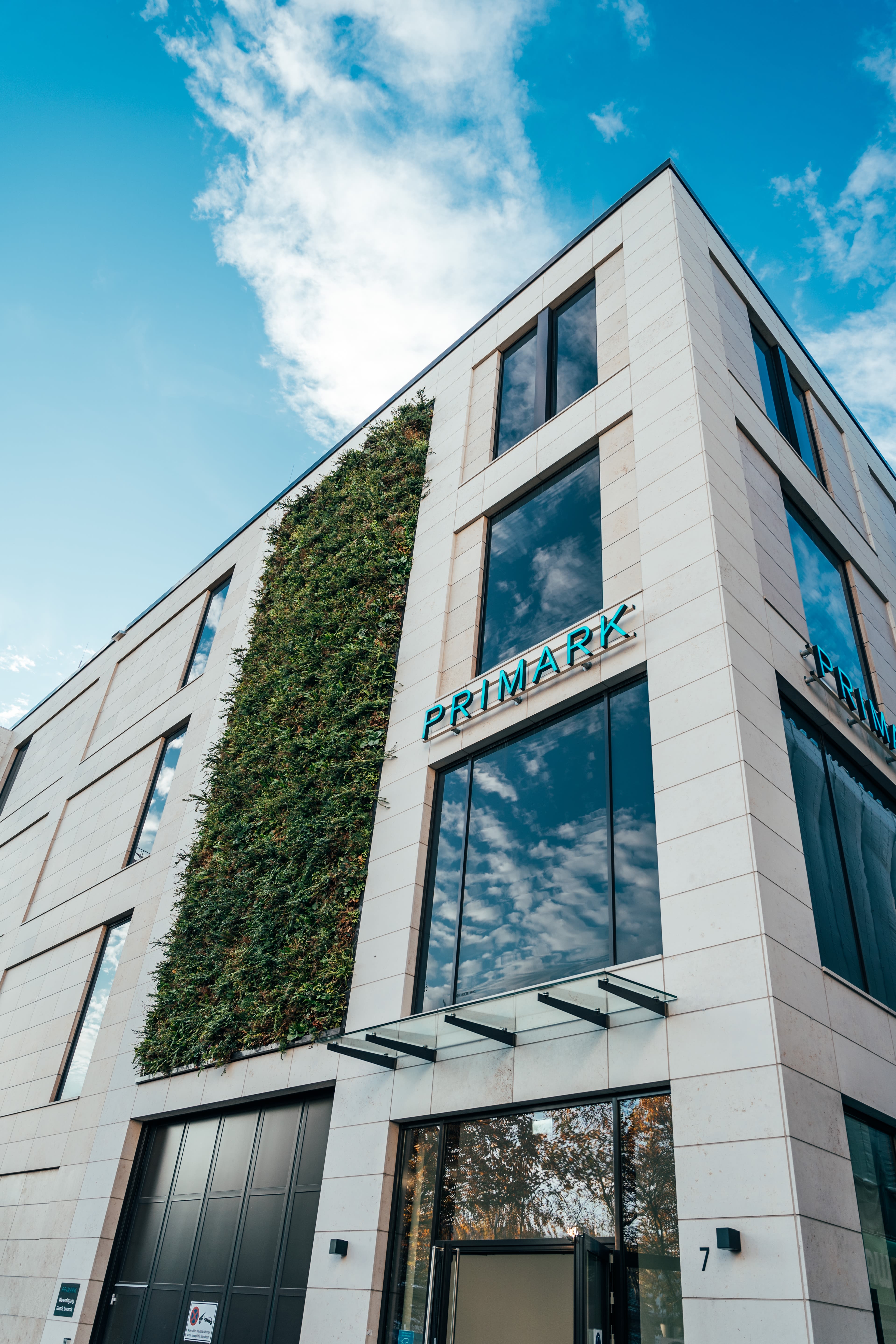
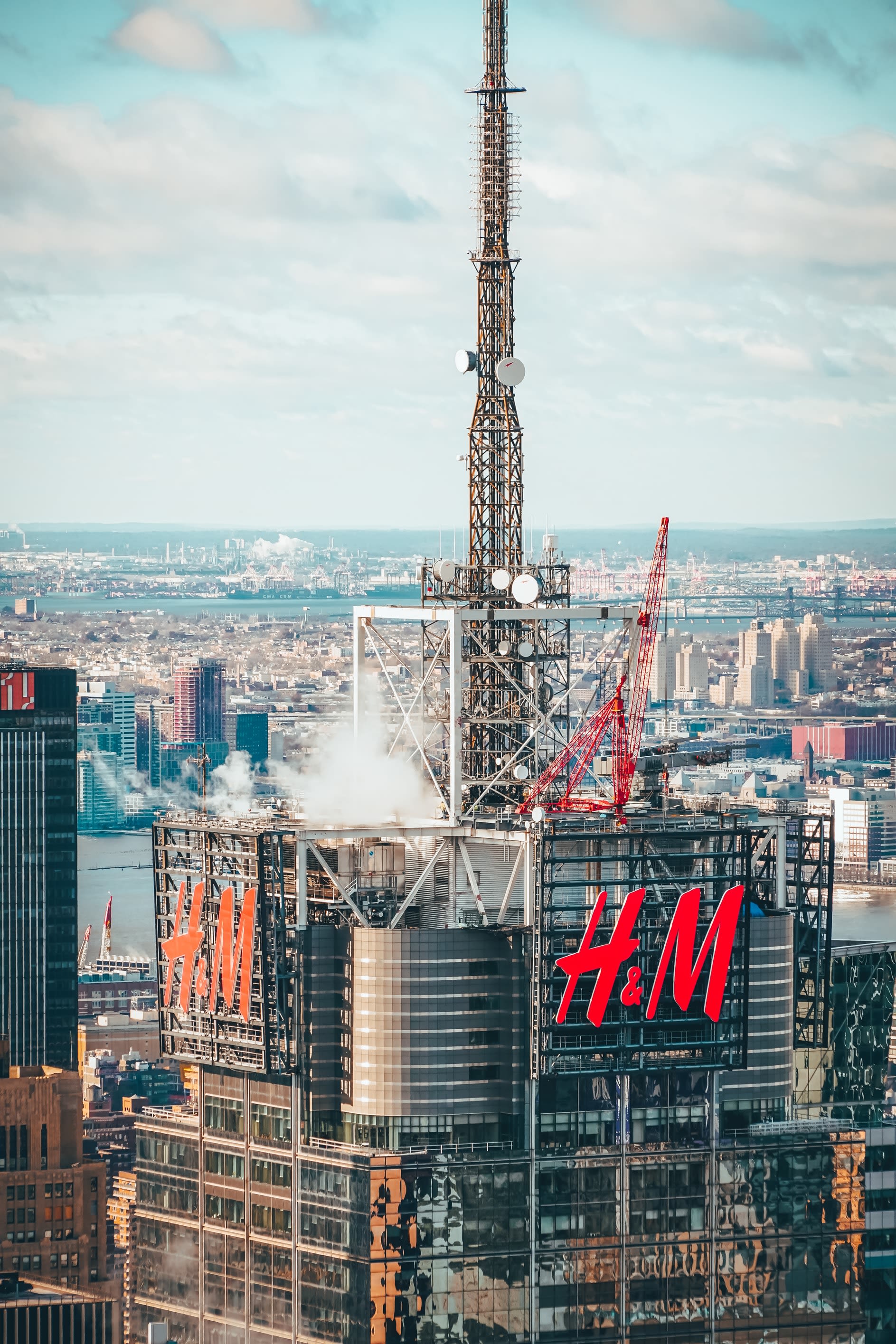
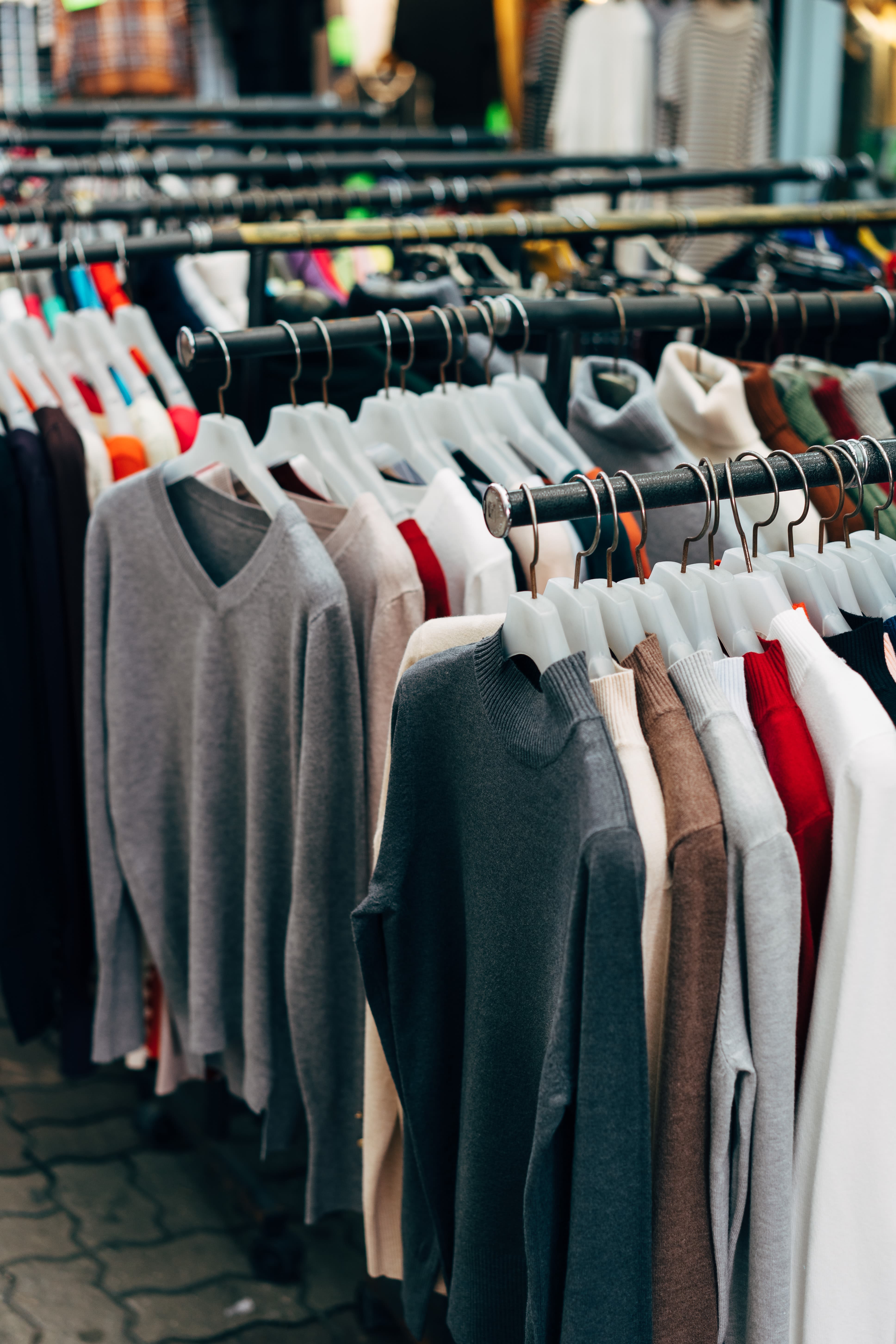
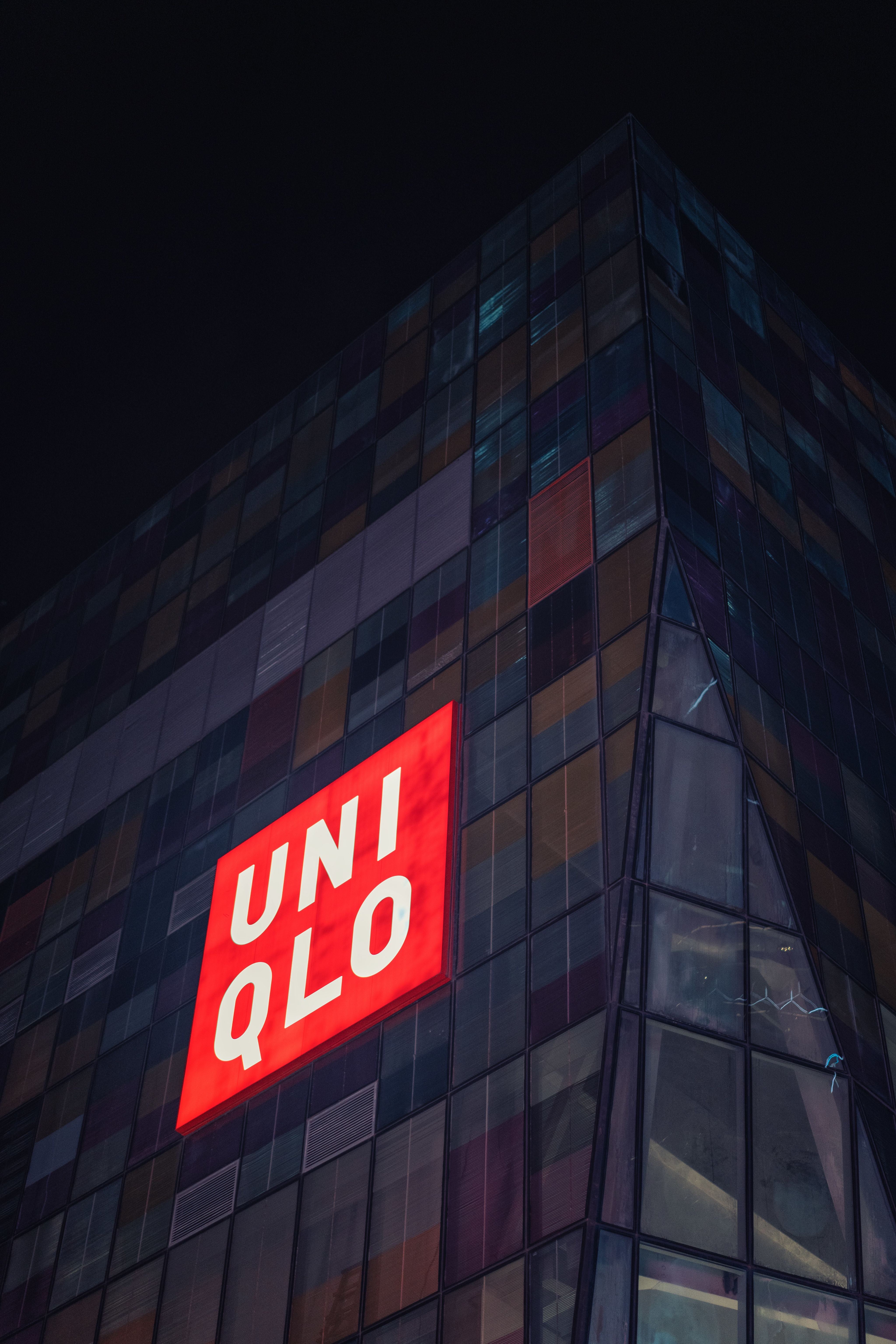


A look at Manchester
More than two centuries since Manchester established itself as the centre of the world's cotton trade, the city is once again at the heart of global fashion production.
Manchester has become home to some of the world's leading online fast-fashion brands. According to a recent report, Manchester is at the forefront of the UK e-commerce industry, with more than 3,000 e-commerce and related companies based in the city.
The Boohoo Group, a company that has become a dominant force in fast fashion over the past decade, was founded in the heart of Manchester's historic textile district in 2006.
Boohoo sales grew by 41% over lockdown, with profits hitting £124.7million. Revenues rose from £1.23billion to £1.74billion in the year to February 2021.
The UK market is the largest for the group, accounting for over half of its revenue.
Perry said she wasn’t surprised by the amount of clothes sold during the UK’s lockdowns.
‘We were all pretty miserable, we were just looking for anything to cheer ourselves up with,' she said.
'It’s kind of like the lipstick effect - in a recession, people buy lipstick. It’s a little thing that cheers you up and makes you feel better.
‘Clothing is so important for making us feel good. It brings that joy, fun, playfulness, and confidence into our lives.
‘There are loads of wonderful things about fashion and these companies made themselves so accessible - they could read us and knew what we wanted at that time, and they offered it to us on a plate.’
Over the years, the Boohoo Group has expanded to become a fashion powerhouse - it now operates several major brands, including MissPap, PrettyLittleThing, Nasty Gal, Warehouse, Oasis, Karen Millen, Coast, Burton, and Dorothy Perkins.
Boohoo HQ is in Manchester city centre, just a ten-minute walk from Piccadilly train station.
Perry explained that the framework for these kinds of retailers existed in Manchester long before the term ‘fast fashion’ was trending.
She said: ‘They were based here historically and they tended to evolve from wholesalers. They already had a supply chain, and from there they decided to go into a direct-to-consumer model and develop a brand.
‘Often they already had relationships with other trading partners, family connections and so on. So they had a really strong supply chain and they were able to deliver on that brand. And by going online, rather than opening up a network of shops, they had access to huge amounts of data.
‘They’re able to monitor, in real time, hour by hour, what people are looking for, and almost make that to order.’
This made them different from more traditional highstreet retailers, who didn’t have access to the all-important demand data on a real-time basis, and would instead order things months in advance which may not be on-trend by the time it arrived at the shops on the ground.
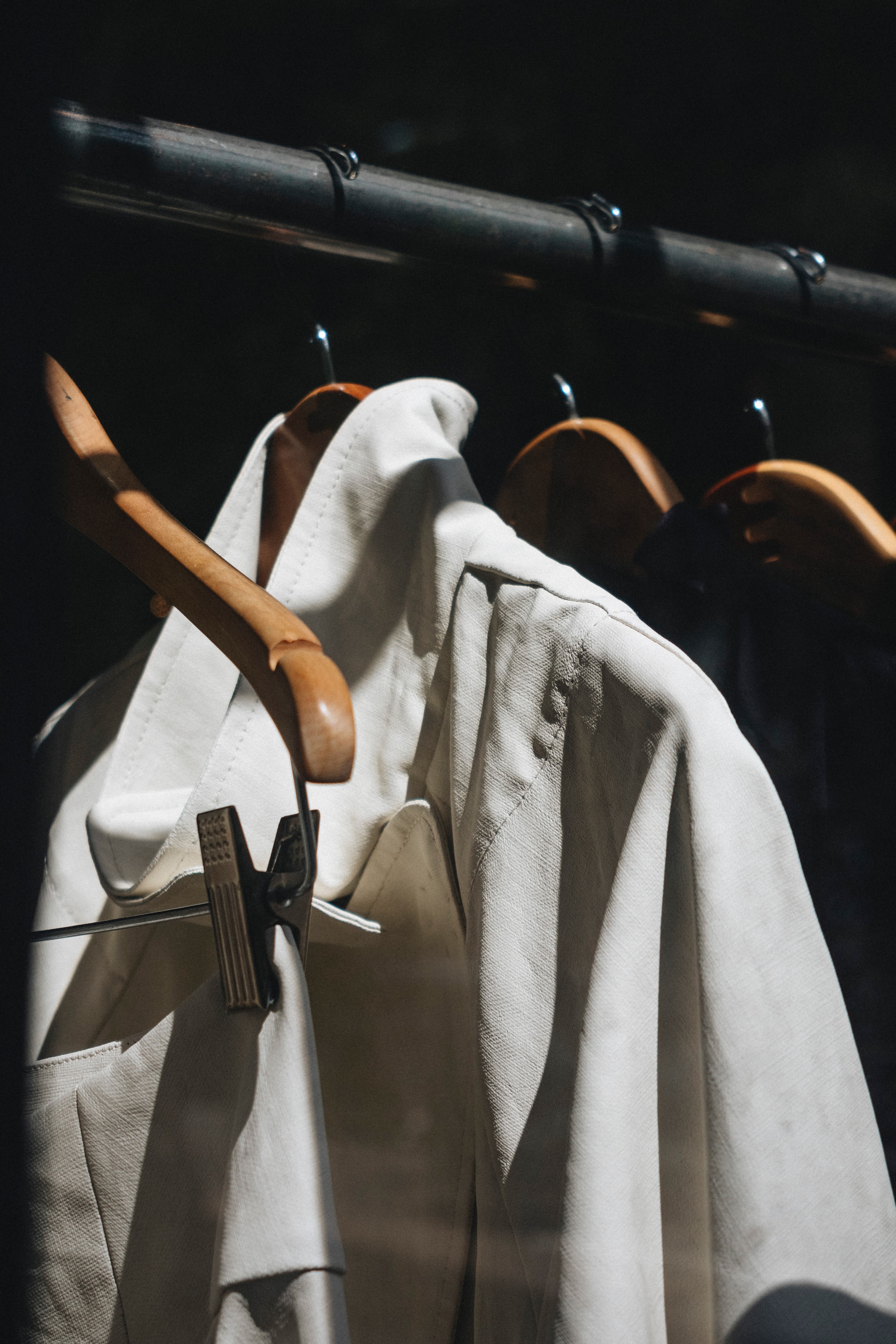
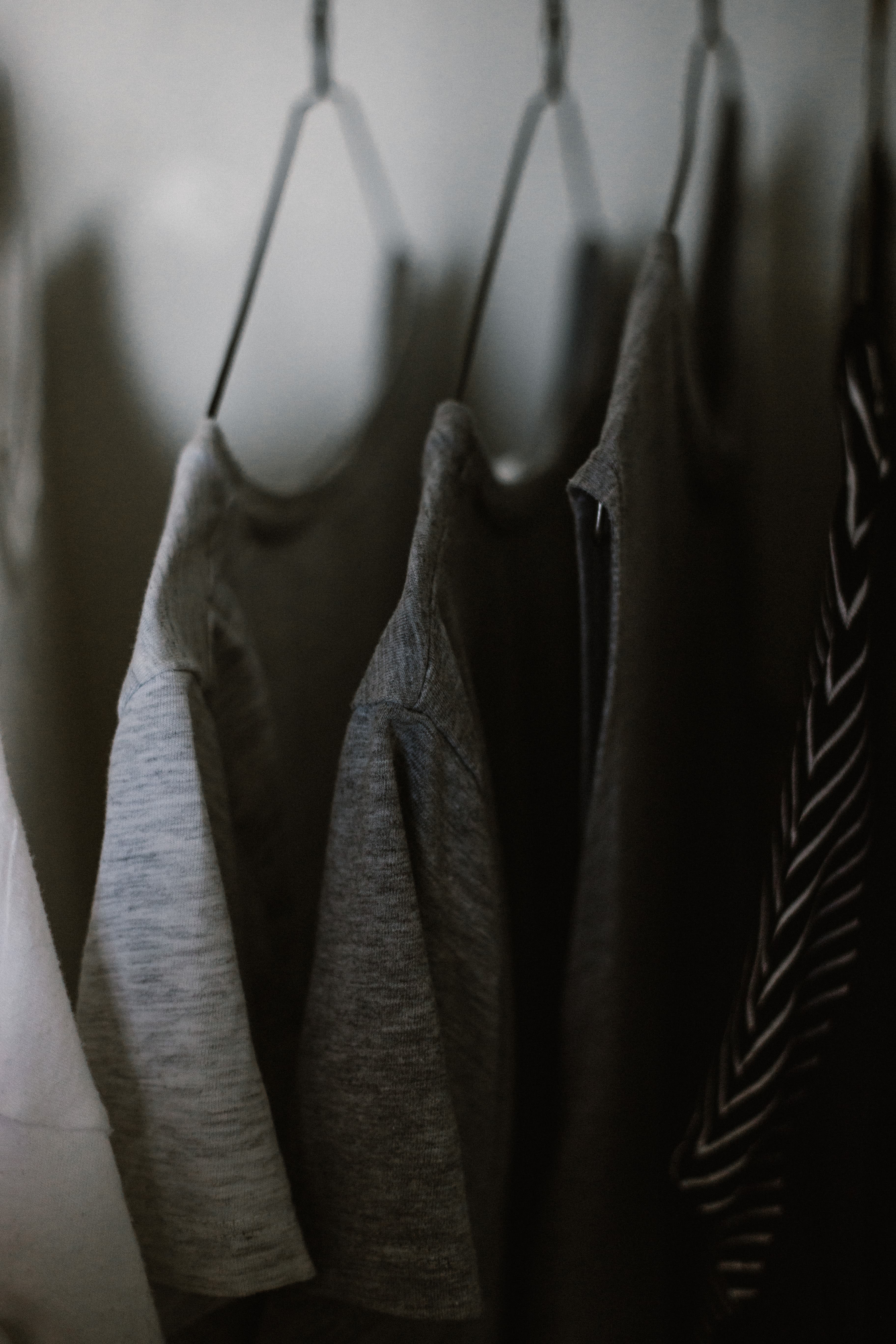
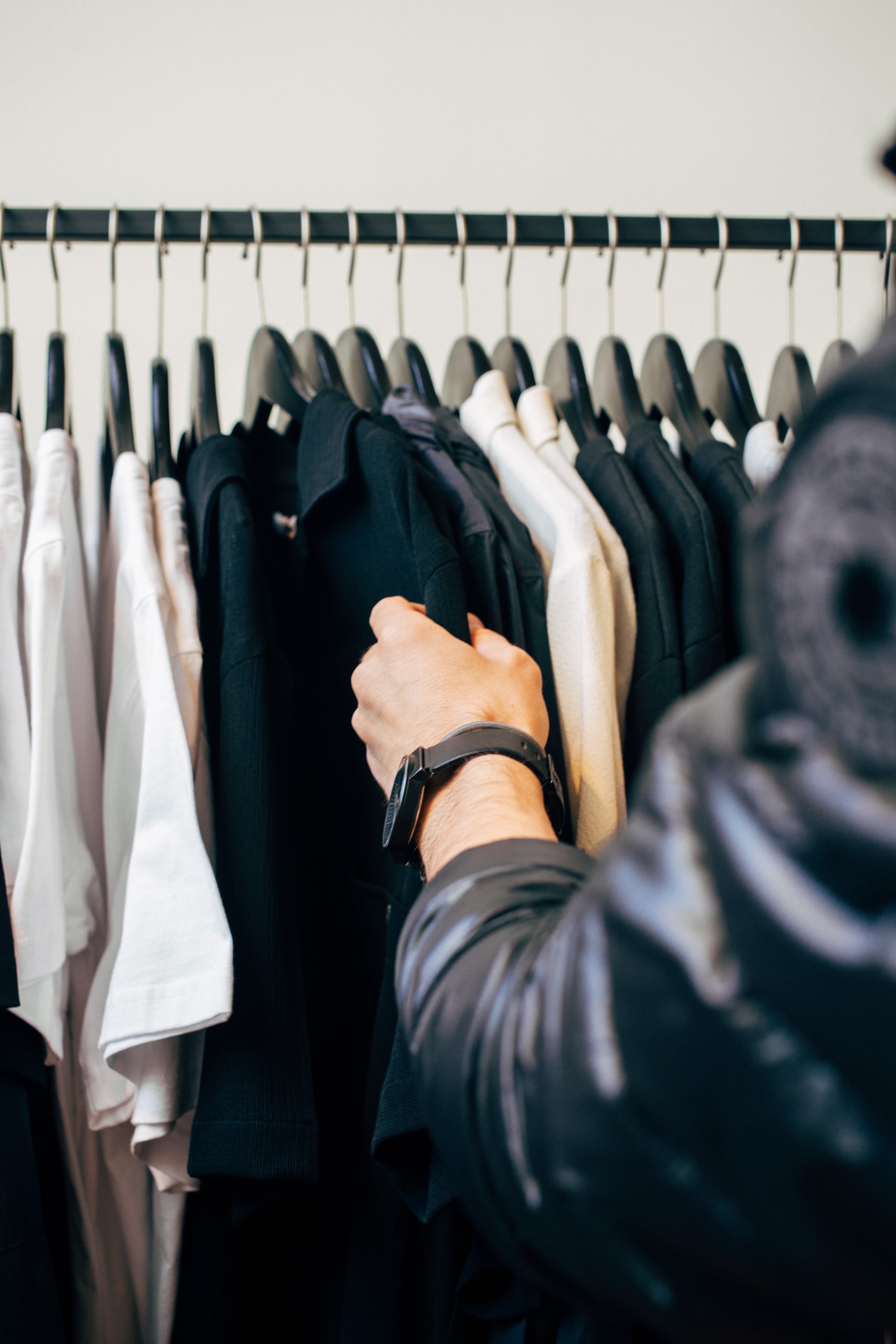
Sustainable fashion in Manchester
While Manchester may be known for its mass-production of fast fashion, a number of independent retailers and 'slow-fashion' pioneers across the city are leading the fight for a more sustainable future.
The Northern Quarter is a mecca for vintage lovers, while Manchester brands like Beaumont Organic, Phloem, and NEMCEE are prioritising sustainability by focusing on local production, high-quality eco-friendly materials, and making clothing that lasts.
The team at NEMCEE spell it out in their NEMCEE Manifesto, which states:
'There are no excuses anymore - there are alternative ways of working. We intend to be part of a community of makers that are doing things differently, with the hope that it isn’t always what makes us different.
We use ethical fabrics and manufacturing methods as an authentic choice and a point of differentiation, in the hope that ethical fabrics and manufacture start becoming the norm.
We want to be part of the change, and for it to no longer be normal to screw people over along the entirety of the supply chain to gain a few pennies more in profit.'
The city’s ‘slow-fashion’ brands are growing in popularity and gaining attention at sustainable markets such as those hosted by Hatch, a pop-up destination in the city centre featuring independent retailers, breweries, and restaurants.
On Friday 29 and Saturday 30 November 2021, Hatch presented the city’s first ever sustainable Christmas market.
The event, aptly named ‘Christmas Shouldn’t Cost the Earth!’, brought together over 25 independent, zero-waste stalls, aiming to make sustainability fun and accessible with affordably priced high-quality items.
This included a huge range of organic, ethically-made clothing from independent retailers across Manchester.
More than 8,000 people visited the market over the course of the weekend, stocking up on eco-friendly Christmas gifts while learning about the brands all across the city who are fighting for a more sustainable way of shopping.
Stitched Up
Stitched Up is just one of a host of not-for-profit community initiatives inspiring people from across Greater Manchester to take action on sustainable fashion.
SKILL UP: The group runs a sustainable clothing hub in Stretford Mall, where anyone can access a public programme of sewing, clothes making, mending and upcycling workshops for all ages and abilities.
RE-USE: By taking donations of textiles from individuals and businesses, the group prevents good fabric from ending up in landfill.
The materials are used in the group's workshops and made available for community re-use. Anything that's left over is recycled.
Monthly Clothes Swap events also help to gives clothes a second lease of life.
ENGAGE: The group hosts events and talks to help raise awareness of the ethical and environmental issues of the fast-fashion industry.
It also encourages people to actively engage with campaigns such as Fashion Revolution and Labour Behind the Label.
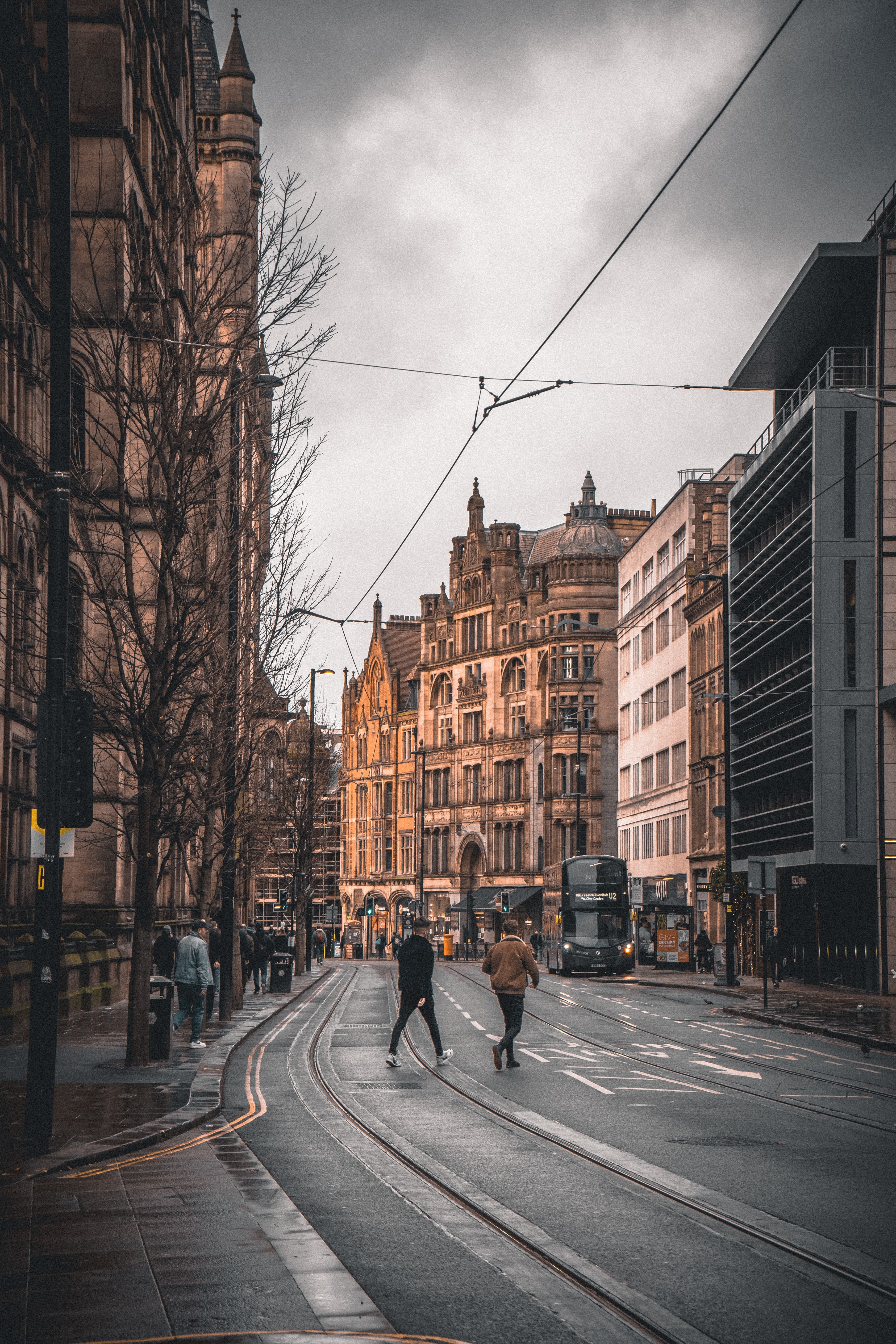
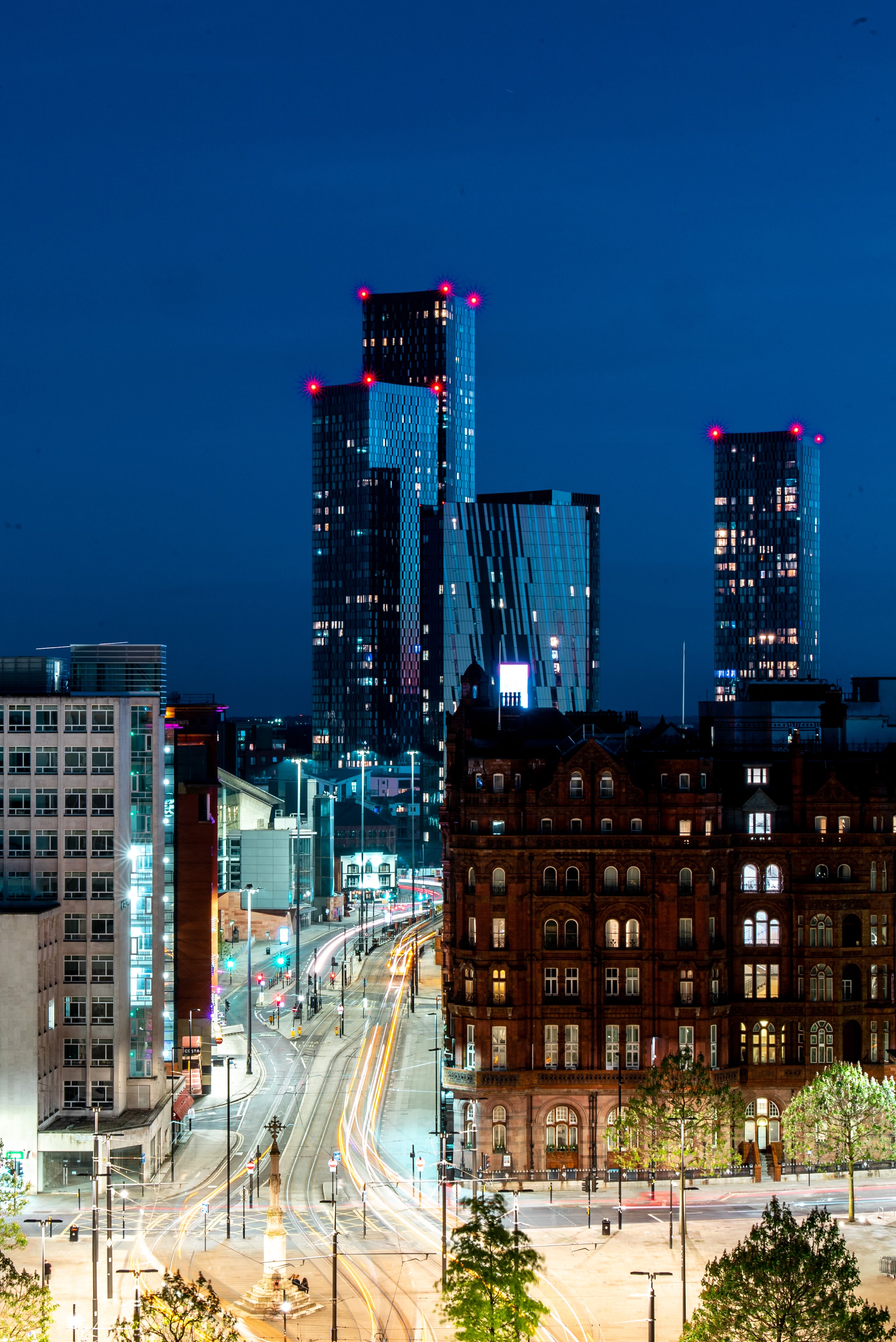
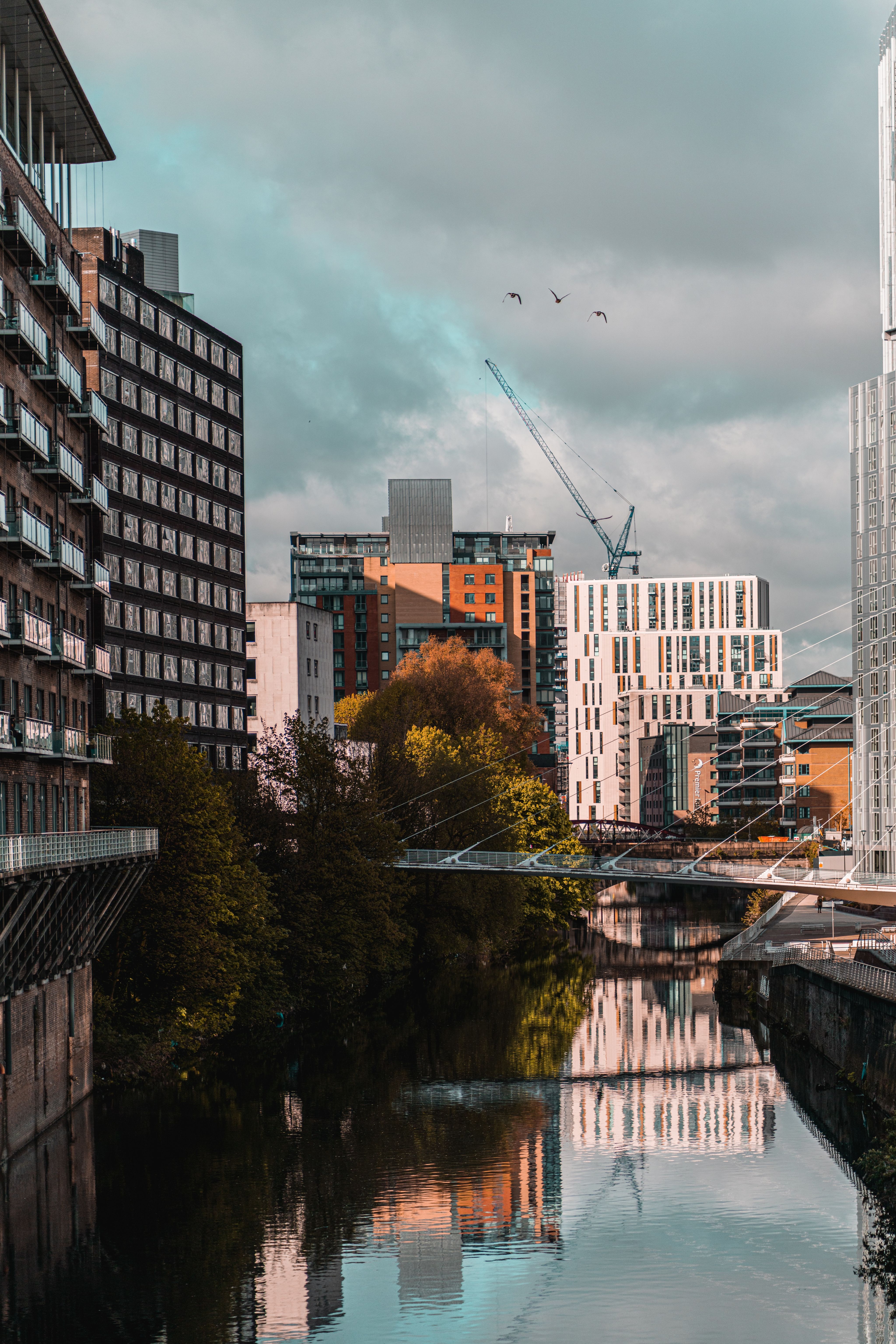
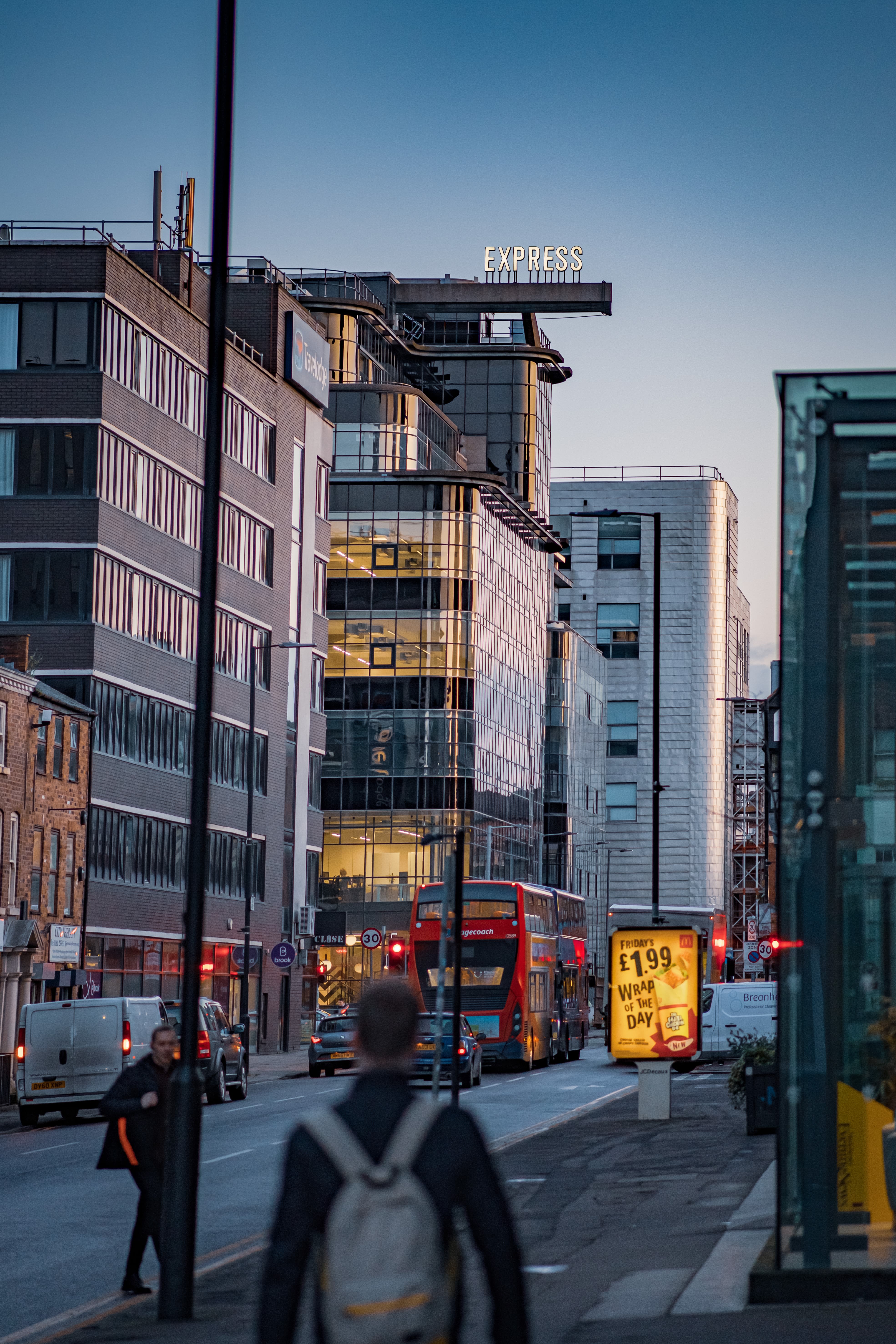
In conversation with Manchester Fashion Movement
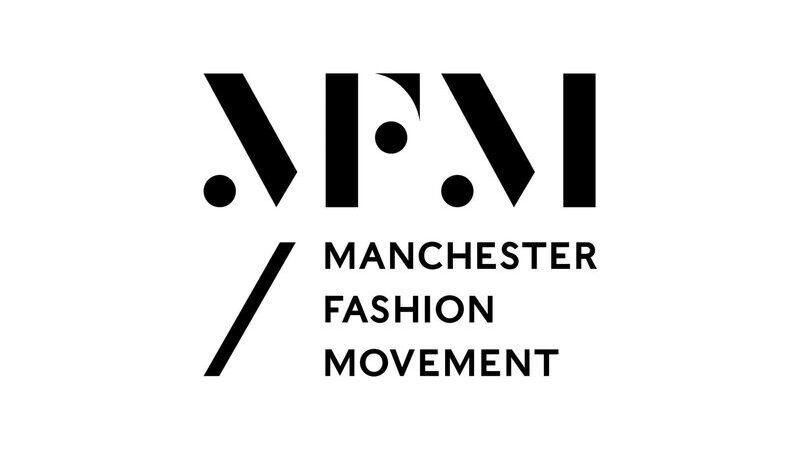
Manchester Fashion Movement (MFM) is an ethical Community Interest Company (CIC) working 'to future-proof our world thru' fashion'.
The organisation was founded in 2020 by Camilla Cheung and Alison Carlin, who joined together on the shared desire to forge a more sustainable future for the fashion industry.
Alison is founder of the Sustainable Fashion Party and AllyPally Vintage. Camilla is founder of conceptual lifestyle brand, Wardrobe Wellbeing.
MFM's ambitious manifesto encourages us all to take responsibility - from holding brands accountable and urging transparency, to educating consumers about their buying choices.
We spoke to Alison about the future of the movement and how MFM is making a difference in Manchester and beyond.
For more information about MFM and its work, visit its Instagram here, its Twitter here, or its Linktree here.
You can sign up to the Orange Pages, MFM's newsletter where the team share stories from the community, inform about upcoming events, and support others to share their thoughts, here.
Website coming soon.

